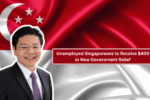In a significant policy shift aimed at enhancing workforce stability and addressing persistent labor shortages, Singapore’s Ministry of Manpower (MOM) has announced the removal of maximum employment duration limits for Work Permit holders, effective July 1, 2025. This move allows foreign workers to remain employed in Singapore indefinitely, subject to meeting eligibility criteria and continued employer demand.
Key Changes to Work Permit Regulations
1. Removal of Maximum Employment Duration
Currently, Work Permit holders face employment caps that range from 14 to 26 years depending on their industry, skill level, and nationality. These restrictions have limited the long-term retention of experienced workers in sectors such as construction, marine shipyard, and manufacturing.
Starting July 2025, these duration limits will be lifted for all nationalities. The change aims to improve retention and reduce turnover among foreign workers who have proven skills and reliability over time. Employers will now have the flexibility to continue employing such workers beyond the previously mandated limits.
2. Increase in Maximum Employment Age
To further align with national labor policies, the maximum employment age for Work Permit holders will be increased from 60 to 63 years. This brings the foreign workforce in line with Singapore’s official retirement age and supports the goal of extending workforce participation among older workers.
In tandem, the age threshold for new Work Permit applicants will also be raised—from the current 50 years (for non-Malaysians) and 58 years (for Malaysians) to 61 years across the board. This adjustment enables a larger pool of mature workers to enter or remain in the labor force.
3. Expansion of Approved Source Countries
From June 1, 2025, employers will have access to a wider range of manpower sources as Bhutan, Cambodia, and Laos are added to the list of approved countries for Work Permit holders. This expansion supports sectoral workforce needs and improves resilience in manpower supply chains.
The move is particularly targeted at sectors like construction and services, which have faced ongoing challenges in sourcing sufficient manpower from traditional source countries.
4. Inclusion of Additional Occupations
Effective September 1, 2025, Singapore will update its Non-Traditional Source (NTS) Occupation List. The revised list will include heavy vehicle drivers, a broader range of manufacturing roles, and cooks specializing in diverse cuisines beyond the usual categories.
This expansion seeks to ease hiring bottlenecks in sectors experiencing high demand and to ensure the workforce has adequate support in roles that are not easily filled by local workers.
Implications for Employers and Workers
The changes are designed to provide mutual benefits for both employers and Work Permit holders.
For Employers:
- Reduced Turnover: Employers can now retain trained and experienced foreign workers for the long term without disruption.
- Lower Recruitment and Training Costs: Minimizing worker replacement cycles reduces expenses associated with hiring and onboarding.
- Workforce Continuity: Stable employment relationships help improve productivity and reduce operational delays, especially in sectors like logistics, construction, and food services.
For Foreign Workers:
- Improved Job Security: The removal of duration limits provides foreign workers with greater certainty and career planning opportunities in Singapore.
- Long-Term Career Development: Workers who were previously forced to leave upon hitting duration caps can now pursue long-term employment and skills upgrading.
- Retirement Age Alignment: The increase in maximum employment age allows older workers to continue contributing economically while planning for retirement.
Policy Context and Future Outlook
Singapore has long relied on a calibrated foreign workforce policy that balances the need for economic growth with the protection of local employment interests. These changes signal a strategic shift toward workforce sustainability, especially as the country grapples with an aging population and tightening labor markets.
In conjunction with recent enhancements to employment pass frameworks and skills development initiatives, these Work Permit reforms reflect the government’s proactive approach to maintaining labor market resilience.
The Ministry of Manpower encourages employers to begin planning for these changes early and to make use of tools like the Workforce Insights portal to optimize hiring strategies. Foreign workers currently employed in Singapore are also advised to discuss long-term employment opportunities with their employers and understand their eligibility under the new rules.




